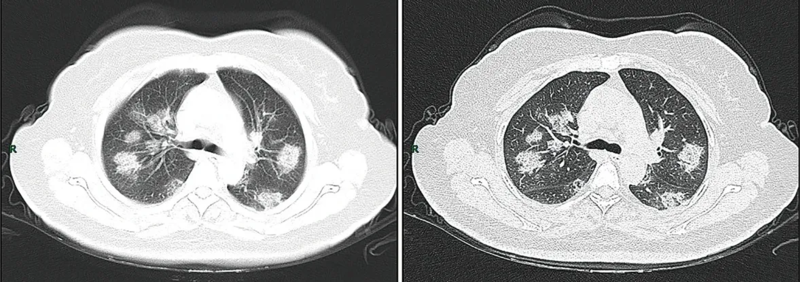
By Michael Ollove, Stateline
The decisions about who should get care should not be based simply on who shows up first, said Nancy Berlinger, resident scholar of the Hastings Center, a New York-based research institution that studies bioethics. Berlinger directed the center’s production of guidelines for medically ethical considerations in the current outbreak.
“One principle that we articulate in our guidance is that ‘first come, first serve’ is not a satisfactory approach,” Berlinger said. “Just because you are part of the first wave shouldn’t give you a claim on a resource so that nobody who comes in after you has access to it.”
Philip Rosoff, an emeritus professor of pediatrics at Duke University and longtime chairman of the Duke Medical Center ethics board, said decisions should be made on the best and most current clinical evidence and with one question uppermost: Who stands to best benefit from the limited quantity of lifesaving treatment?
Those guidelines, Rosoff said, should explicitly state that “allocations will be based on clinical evidence only and without consideration of social, ethnic, economic and other non-clinical considerations of people. You don’t want to exacerbate pre-existing social disparities that already prevail in this country.”
Bioethicists say providers should focus first on a patient’s underlying health condition and whether that condition lowers the chance of recovery.
“If I have limited amounts of lifesaving treatment, and the chances of you responding well to it are 5% because of an underlying condition, and someone else who doesn’t have that condition has a 50% chance of doing well with it, what should you do? You have one treatment. Who should get it?” Rosoff said.
“That’s not discrimination; it’s just the way it is.”
Rosoff agreed that such strategies would tend to favor young and healthy people over older ones, who are far more likely to have chronic and serious medical conditions.
“That being said, if two people come in and their clinical characteristics are such that they have an equal chance of survival, they should have an equal shot of getting on advanced lifesaving treatment,” Rosoff said, whatever their respective ages.
For years medical ethicists have debated whether age alone should be the deciding factor in determining who gets lifesaving care first. The idea that youth should be given preference even has a name, one derived from the sport of cricket: the fair innings argument. It posits that an older person has already had a chance to live a long life.
Younger people, in competition for the same medical treatment, should be given preference so they will have the same opportunity.
“This is the argument that under crisis conditions, it is ethically acceptable to give preference to the younger patient, so that this person has a chance to experience the life cycles that the older patient has already experienced,” Berlinger said.
Sometimes the question is not whether to provide care for a certain patient, but when to stop it so resources can be transferred to somebody else.
The Hastings guidelines raise one increasingly likely hypothetical: “A critically ill patient waiting for an ICU bed might be better able to benefit from this resource than a patient already in the ICU whose condition is not improving,” it says.
Democratic New York Gov. Andrew Cuomo made that same point at a news conference last week. He said that older and weaker patients were sometimes staying on ventilators for weeks at a time without improving. The implication was that the ventilators could have saved someone with a better chance of survival.
“The longer they’re on, the more likely they’re not going to come off,” Cuomo said. “That is what has happened. We do have people who have been on for quite a period of time, and those are the people we’re losing.”
Who Decides?
Rosoff noted that medical professionals, who in normal circumstances are inclined to devote all necessary resources to save every patient, will be called upon to make the kinds of decisions unimaginable even a few weeks ago.
“Something not getting much discussion is the tremendous moral and psychological burden this will place on frontline medical professionals with these very difficult medical decisions,” he said.
But, ideally, hospitals have protocols in place to ensure that such decisions are not left to the bedside doctors and nurses, said Dr. Susan Goold, a professor of internal medicine at the University of Michigan who is on the faculty of its Center for Bioethics and Social Sciences in Medicine.
“If I’m taking care of that patient, I’m not the one to decide if they get scarce resources,” she said.
Priority of care decisions “should be made by persons removed from the clinical context,” according to guidelines issued by the Michigan Department of Community Health. If they don’t already have them, Goold said, hospitals need to create small, nimble committees of doctors, nurses and bioethicists to make the decisions.
“So, it’s not me, the doctor taking care of the patient, saying, ‘No, you’re too old or sick,’” she said. “It’s somebody else. You don’t want doctors and nurses being seen as making those decisions by their patients or their families.”
Stateline, an initiative of The Pew Charitable Trusts.


